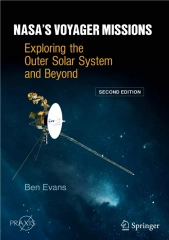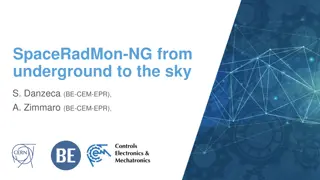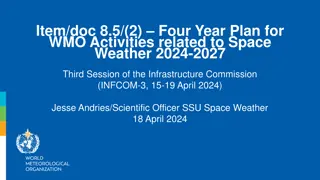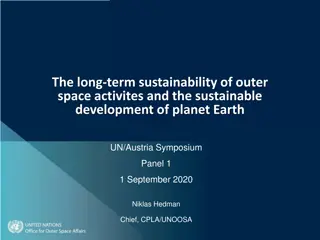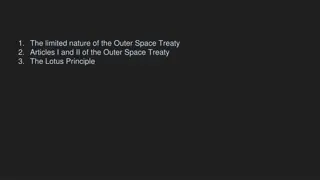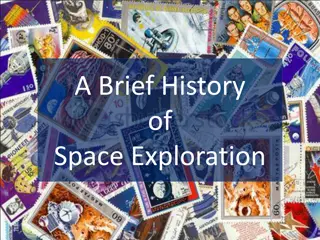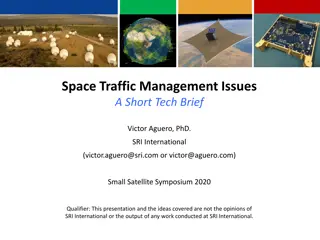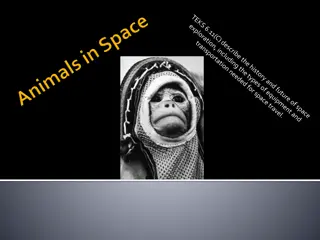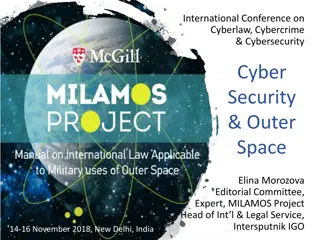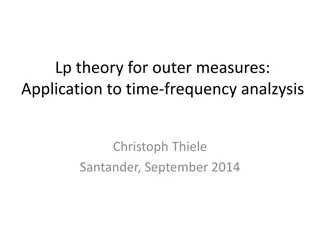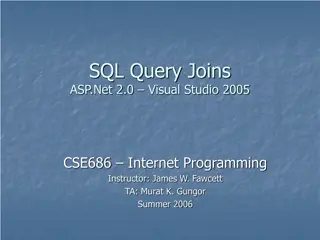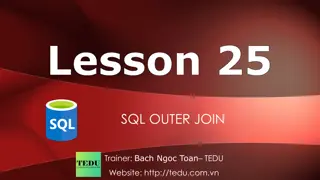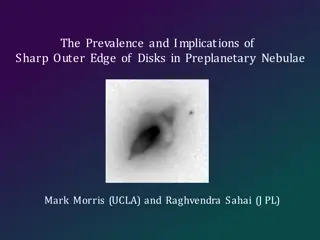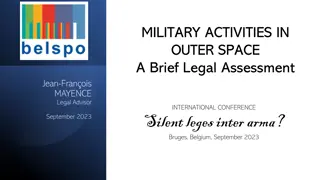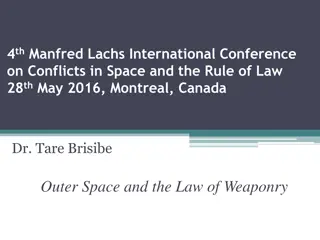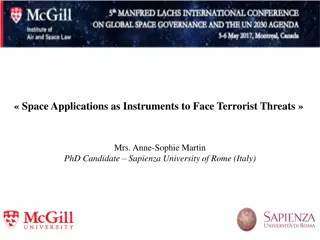Policy Considerations for New Activities in Outer Space
Exploring the policy implications of upcoming missions to asteroidal and lunar destinations, this presentation discusses the fundamental goals of space activities, including science, settlement, security, and sales. It explores trade-offs in policymaking and different actors' strategies, highlighting the diverse governance and regime design needed for effective management of space endeavors.
Download Presentation

Please find below an Image/Link to download the presentation.
The content on the website is provided AS IS for your information and personal use only. It may not be sold, licensed, or shared on other websites without obtaining consent from the author.If you encounter any issues during the download, it is possible that the publisher has removed the file from their server.
You are allowed to download the files provided on this website for personal or commercial use, subject to the condition that they are used lawfully. All files are the property of their respective owners.
The content on the website is provided AS IS for your information and personal use only. It may not be sold, licensed, or shared on other websites without obtaining consent from the author.
E N D
Presentation Transcript
Making Policy for New Activities in Outer Space: In pursuit of science, settlement, security, or sales? Presented by Alanna Krolikowski Missouri University of Science and Technology Based on an article in press at Space Policy co-authored with Martin Elvis
Outline Upcoming missions: A flurry of new asteroidal and lunar activities Fundamental goals of space activities and their implications Science Settlement Security Sales Trade-offs in policymaking
Upcoming missions Several missions to new asteroidal and lunar destinations are planned or in progress. NASA s OSIRIS-Rex JAXA s Hayabusa 2 Chinese mission to Toutatis, sample return ESA s Asteroid Impact Mission and NASA s DART, forming AIDA Deep Space Industries Planetary Resources
Fundamental goals of new space activities The medium term: 20-30 years Actors: different sociotechnical constituencies pursue distinct goals Governance and regime design Institutionalization
Table 1. Policy regimes for asteroid activities Activity type Science Settlement Security Sales Research institutions Major civil space agencies Space, public safety, and Private firms Main actors defense agencies Coordination with common rules, participation to varying degrees Institutionalized cooperation of few Institutionalized coordination and cooperation of many Competition Interaction Guiding principle Main actors strategy Responsible sharing Sustaining human presence Derivative of the primary settlement mission Duty to protect Investor reward Foster non-exclusion and shared access Preserve scarce scientific resources Detect, deflect, and mitigate impact threats Maximize commercial returns and minimize costs Establish exclusive ownership of resources Develop protocols for in situ manipulation and return, documentation, data collection Share data Minimize constraints upon asteroid activities Share data Share data Foster development of supporting technologies Protect proprietary status of asteroid data and material Prioritize speed Limit rival entry Operational implications
Science: space resources for the production of knowledge Constituency and goals Medium-term prospects Responsible sharing as a principle guiding regime design
Settlement: space resources as stepping stones toward deep-space habitation Constituency and goals Medium-term prospects Sustaining human presence as a principle guiding regime design
Security: space objects as threats to Earth Constituency and goals Medium-term prospects The duty to protect as a principle guiding regime design
Sales: space resources for profits on Earth Constituency and goals Medium-term prospects Investor reward as a principle guiding regime design
Trade-offs in making policy for new activities in space Precaution or plunder? Private goods? Public bads? An asteroidal or lunar rush? Inclusion and participation
Thank you for your attention. Questions may be directed to akro@mst.edu
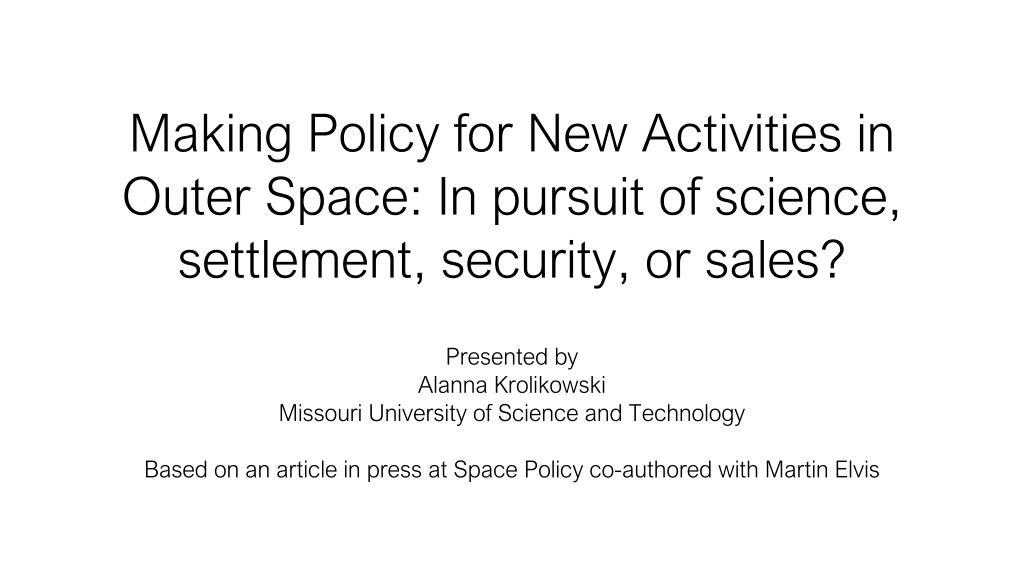



![READ⚡[PDF]✔ Emerging Space Powers: The New Space Programs of Asia, the Middle Ea](/thumb/21554/read-pdf-emerging-space-powers-the-new-space-programs-of-asia-the-middle-ea.jpg)
